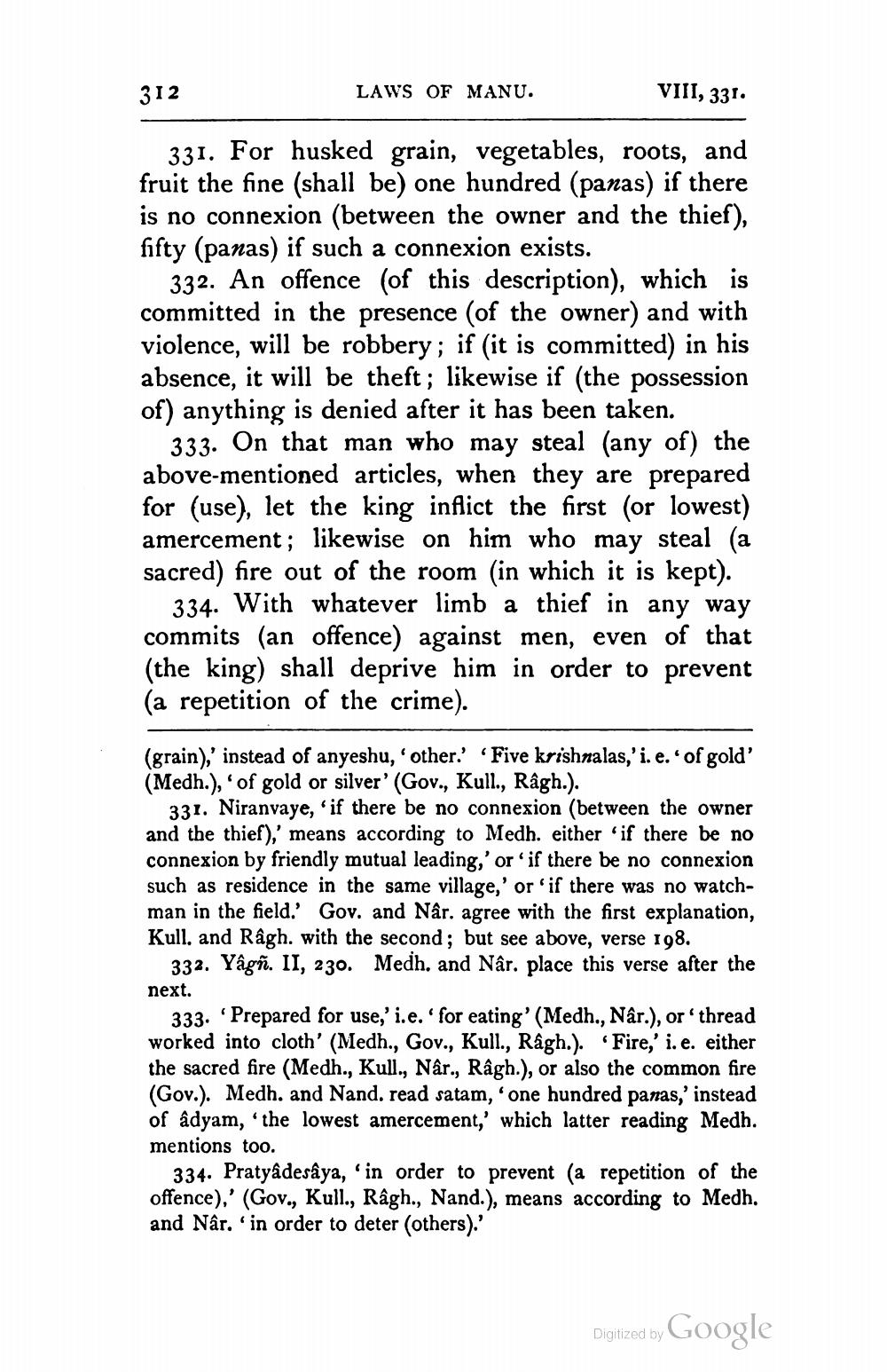________________
312
LAWS OF MANU.
VIII, 331.
331. For husked grain, vegetables, roots, and fruit the fine (shall be) one hundred (panas) if there is no connexion (between the owner and the thief), fifty (panas) if such a connexion exists.
332. An offence of this description), which is committed in the presence (of the owner) and with violence, will be robbery; if (it is committed) in his absence, it will be theft; likewise if (the possession of) anything is denied after it has been taken.
333. On that man who may steal (any of) the above-mentioned articles, when they are prepared for (use), let the king inflict the first (or lowest) amercement; likewise on him who may steal (a sacred) fire out of the room (in which it is kept).
334. With whatever limb a thief in any way commits (an offence) against men, even of that (the king) shall deprive him in order to prevent (a repetition of the crime).
(grain),' instead of anyeshu, 'other.' 'Five krishnalas,'i.e. of gold' (Medh.), of gold or silver' (Gov., Kull., Râgh.).
331. Niranvaye, if there be no connexion (between the owner and the thief),' means according to Medh. either if there be no connexion by friendly mutual leading,' or if there be no connexion such as residence in the same village,' or 'if there was no watchman in the field.' Gov. and Nâr. agree with the first explanation, Kull, and Râgh. with the second; but see above, verse 198.
332. Yâgñ. II, 230. Medh. and Nâr. place this verse after the next.
333. 'Prepared for use,' i.e. for eating' (Medh., Nár.), or 'thread worked into cloth' (Medh., Gov., Kull., Râgh.). "Fire,' i.e. either the sacred fire (Medh., Kull., Nár., Râgh.), or also the common fire (Gov.). Medh. and Nand. read satam, one hundred panas,' instead of adyam, the lowest amercement,' which latter reading Medh. mentions too.
334. Pratyadesaya, 'in order to prevent (a repetition of the offence),' (Gov., Kull., Râgh., Nand.), means according to Medh. and Nâr. ' in order to deter (others).'
Digitized by
Digitized by Google




